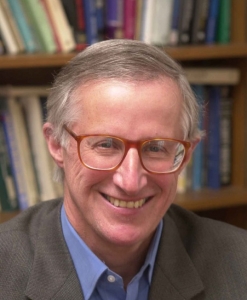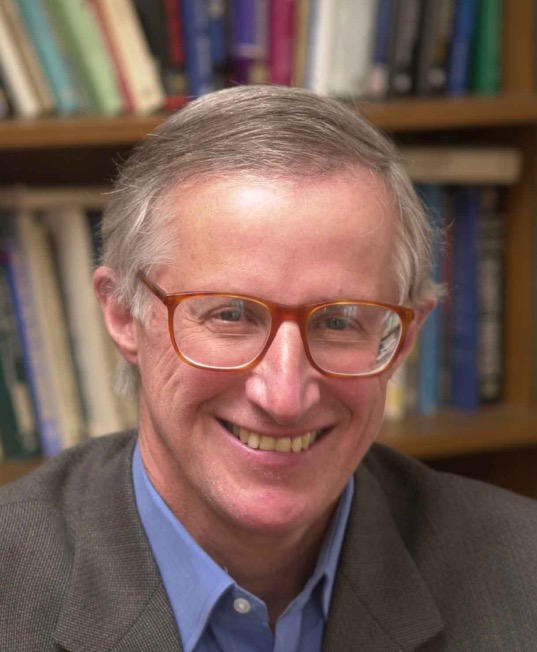Nordhaus Wins Nobel Prize
Editor’s Note: Not technically News from our Class, Nordhaus was on the faculty from 1967 on. If you studied under him, please leave comments below.
(Update 12/5/18: Based on Dan Seiver’s comment, I changed the body of this article to the more complete version shown here, not the short announcement from the NY Times on 10/8, which is still pasted at the end.)
William Nordhaus wins 2018 Nobel Prize in Economic Sciences
Monday, October 8, 2018

William Nordhaus ’63 B.A., ’72 M.A., Sterling Professor of Economics at Yale University and the world’s leading economist on climate change, has been awarded the 2018 Sveriges Riksbank Prize in Economic Sciences for “integrating climate change into long-run macroeconomic analysis.”
“I am honored to be awarded the Nobel Prize in Economics for work on environmental economics,” Nordhaus said. “But even more, I am grateful for the intellectual environment at Yale that taught me as a student, nurtured me as a teacher and scholar, and allowed the freedom to devote my life to one of the critical emerging issues of humanity.”
Nordhaus shared the prize with Paul Romer, professor of economics at New York University’s Leonard N. Stern School of Business.
Nordhaus’ research has focused on economic growth and natural resources, the economics of climate change, and resource constraints on economic growth. Since the 1970s, he has developed economic approaches to global warming, including the construction of integrated economic and scientific models (the DICE and RICE models) to determine the efficient path for coping with climate change. These models are widely used today in research on studies of climate-change economics and policies. He has also studied wage and price behavior, health economics, augmented national accounting, the political business cycle, productivity, and the “new economy.”

“This is fitting recognition of William Nordhaus’ work on the economics of climate change,” said Yale University President Peter Salovey. “Yale is absolutely thrilled to have one of our most distinguished faculty — who is also one of our most distinguished alumni — receive this great honor.”
Born in Albuquerque, New Mexico, Nordhaus completed his undergraduate work at Yale in 1963 and received his Ph.D. in economics in 1967 from the Massachusetts Institute of Technology. He joined the Yale faculty in 1967 and in 2001 became a Sterling Professor of Economics — the highest honor given to a Yale faculty member. He is also a professor in Yale’s School of Forestry & Environmental Studies.
From 1977 to 1979, Nordhaus was a member of the President’s Council of Economic Advisers; from 1986 to 1988, he was provost of Yale University. He has served on several committees of the National Academy of Sciences on topics including climate change, environmental accounting, risk, and the role of the tax system in climate change.
His 1996 study of the economic history of lighting back to Babylonian times found that the measurement of long-term economic growth has been significantly underestimated. He returned to Mesopotamian economics with a study of the costs of the U.S. war in Iraq, published in 2002 before the war began, projecting a total cost as high as $2 trillion. He directs the “G-Econ project,” which provides the first comprehensive measures of economic activity at a geophysical scale.
Nordhaus is current or past editor of several scientific journals and has authored many books, among them “Invention, Growth and Welfare, Is Growth Obsolete?”; “The Efficient Use of Energy Resources”; “Reforming Federal Regulation”; “Managing the Global Commons”; “Warming the World”; and (jointly with Paul Samuelson) the classic textbook “Economics,” whose 19th edition was published in 2009. His book on economic modeling of climate change, “A Question of Balance,” was selected by Choice magazine as an Outstanding Academic Title of 2008. His most recent book, “The Climate Casino: Risk, Uncertainty, and Economics for a Warming World,” was published in 2013.
Nordhaus was the first chair of the Advisory Committee for the Bureau of Economic Analysis and of the American Economic Association Committee on Federal Statistics. In 2004 he was awarded the prize of “Distinguished Fellow” by the American Economic Association(link is external) (AEA). He served as president of the AEA for 2014–2015 term.

Nordhaus is a member of the National Academy of Sciences and a fellow of the American Academy of Arts and Sciences. He is on the research staff of the National Bureau of Economic Research and the Cowles Foundation for Research at Yale and has been a member and senior adviser of the Brookings Panel on Economic Activity, Washington, D.C., since 1972. He served as the chair of the Board of Directors of the Boston Federal Reserve Bank from 2014 to 2015.
He received the BBVA Foundation’s 2017 Frontiers of Knowledge Award for his work on climate change.
Nordhaus lives in downtown New Haven with his wife, Barbara, an assistant clinical professor for social work at the Yale Child Study Center.
Video: William Nordhaus on the economics of climate change
from the New York Times, Oct. 8, 2018

WASHINGTON — The 2018 Nobel Memorial Prize in Economic Science was awarded on Monday to a pair of American economists, William D. Nordhaus and Paul M. Romer, for their work highlighting the importance of government policy in fostering sustainable economic growth.
Mr. Nordhaus was honored for pioneering the assessment of the economic impact of climate change, including his advocacy for governments to tax carbon emissions. Mr. Romer was honored for his work on the role of policy in encouraging technological innovation.
Mr. Nordhaus, 77, is a professor at Yale. Mr. Romer, 62, is a professor at New York University.
from Wikipedia
William Dawbney “Bill” Nordhaus (born May 31, 1941) is an American economist and Sterling Professor of Economics at Yale University, best known for his work in economic modeling and climate change. He is, together with Paul Romer, one of the laureates of the 2018 Nobel Memorial Prize in Economic Sciences. Nordhaus received the Nobel “for integrating climate change into long-run macroeconomic analysis”.
Nordhaus received his B.A. and M.A. from Yale in 1963 and 1973, respectively, where he was a member of Skull and Bones. He also holds a Certificat from the Institut d’Etudes Politiques (1962) and a Ph.D. from MIT (1967). He has been a member of the faculty at Yale since 1967 and has also served as its Provost from 1986–1988 and its Vice President for Finance and Administration from 1992–1993. His tenure as provost was among the shortest in the university’s history.** He has been on the Brookings Panel on Economic Activity since 1972. During the Carter administration, from 1977–1979, Nordhaus was a member of the Council of Economic Advisers.
Nordhaus lives in New Haven, Connecticut, with his wife, Barbara, a social worker in the Yale Child Study Center.
** [Editor] Does anyone know why this was so short?


Here is the link you are looking for (I would just substitute this for what you have):
https://economics.yale.edu/news/william-nordhaus-wins-2018-nobel-prize-economic-sciences#sthash.o9ohZZbB.dpbs
Nordhaus (accompanied by Tobin) taught me in the flower of his youth and taught my daughter (’03) in the flower of her youth. One of Yale’s strengths has always been that many nationally-known professors teach callow undergraduates (as I was). I have now been taught at Yale by 3 Nobel-prize winners (Tobin, Stiglitz, and Nordhaus). Could not have asked for better training.